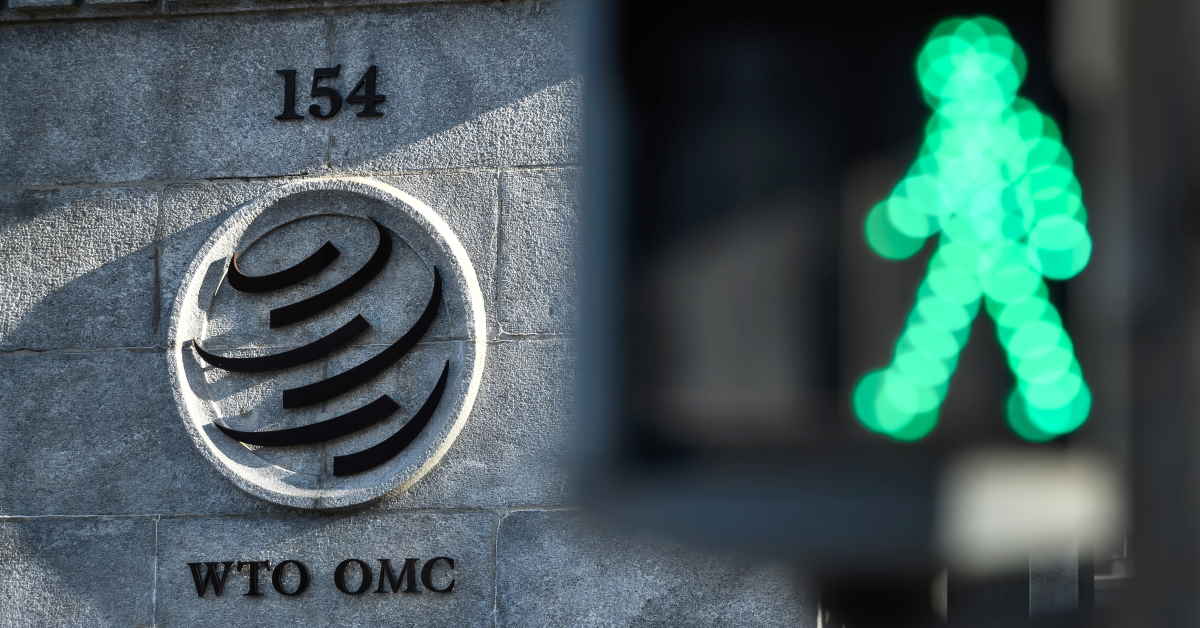The World Trade Organization (WTO) chief hailed Wednesday a breakthrough between the European Union (EU), the United States (US), India and South Africa on waiving intellectual property rights on COVID-19 vaccines.
Ngozi Okonjo-Iweala said the compromise was a big step forward in a bid to end the logjam at the global trade body.
However, she cautioned that some of the details on waiving WTO rules on Trade-Related Aspects of Intellectual Property Rights (TRIPS) still needed to be fleshed out – and it would need the backing of all WTO members to come into force.
"This is a major step forward and this compromise is the result of many long and difficult hours of negotiations," Okonjo-Iweala said.
"But we are not there yet. We have more work to do to ensure that we have the support of the entire WTO membership."
Since October 2020, South Africa and India have called for IP rights to be temporarily lifted for coronavirus vaccines during the pandemic in order to boost production and address the gaping inequality in access between rich and poor nations.
However, the idea has met with fierce opposition from pharmaceutical giants and many of their host countries.
They have argued that patents are not the main roadblocks to scaling up production and warn the move could hamper innovation.
Okonjo-Iweala's statement came hours after Adam Hodge, spokesman for the US Trade Representative Katherine Tai, announced that lengthy talks had resulted in a "compromise outcome that offers the most promising path toward achieving a concrete and meaningful" result.
"No agreement on text has been reached and we are in the process of consulting on the outcome," he added.
'Wrong Solution': Pharma Lobby
Okonjo-Iweala, a former Nigerian finance minister, said should start immediately to widen the discussion to all 164 WTO members.
Switzerland, home to several major pharmaceutical companies, has notably repeatedly voiced its unwillingness to budge.
A source close to France's foreign trade minister Franck Riester said agreement had been struck at a technical level but now needed a green light at the political level.
He said the compromise would only apply to developing countries accounting for less than 10 percent of global COVID vaccine exports, excluding China.
He said the plan was intended to facilitate the granting of compulsory licensing deals, a provision already within the TRIPS system.
Compulsory licences give companies other than the patent holder authorisation to make a product, without the consent of the patent owner, subject to certain procedures and conditions being respected.
The International Federation of Pharmaceutical Manufacturers and Associations (IFPMA) big pharma lobby group slammed the compromise, saying that weakening patents when supply constraints had eased was a mistake.
The IFPMA said 12 billion vaccine doses had been produced within a year of the first jab being authorised, and the industry was now pumping out more than a billion doses per month.
"The challenge now is how to get the vaccines into the arms of people who need them, rather than vaccine supply," the group said.
"The TRIPS waiver is not only the wrong solution, it is also an outdated proposal, that has been overtaken by events."
Max Lawson, co-chair of the People's Vaccine Alliance coalition campaigning for wider access to Covid vaccines, said the TRIPS waiver proposal was a half-measure that did not address IP rights on COVID-19 treatments.
"Every barrier to accessing these crucial vaccines and treatments must be cleared away," he said.
